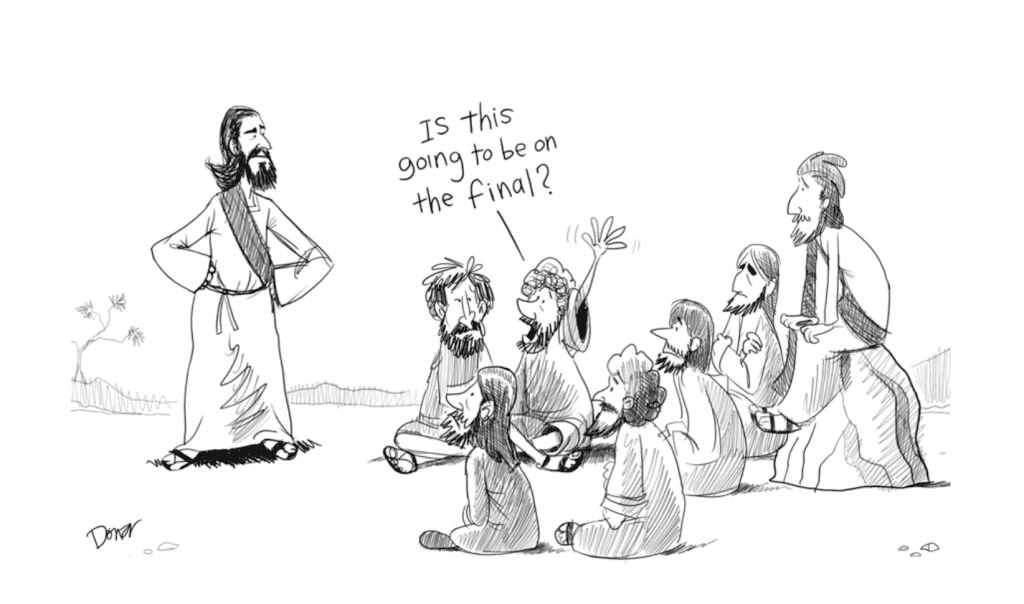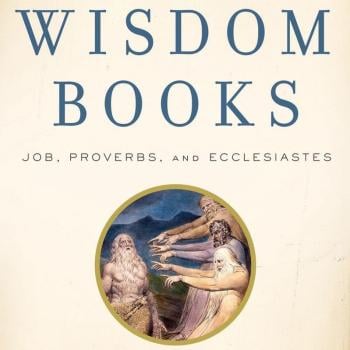Sometimes I get really frustrated with some Biblical scholars. They can’t see the forest for the over-analyzed particular trees. And one such issue is the issue of slavery. Let’s be clear that slavery as a social practice was part of the world of the OT in the Ancient Near East, and the world of the NT which was the Greco-Roman world. It is quite true that we have plenty of material that talks about slavery in the OT and some in the NT in the household codes in Col. 3-4 and Ephes. 5-6 in particular. But the question is HOW do those passages talk about these things? It is a mistake to think that that material implies an endorsement of that whole social system when it is not.
I was in D.C. at the Museum of the Bible where they had on display the Slave Bible. This is quite literally a Bible with a huge amount of passages deleted from it, the passages which suggest that slavery is not a good thing, slavery is even an anti-Bible, anti-created in God’s image thing. It was a Bible prepared by slave-owners and slave holders in England to be used in British colonies where there were slaves, places like Jamaica. Now there would have been no need for such an expurgated Bible if the Bible endorsed slavery right, left, and center, which it does not.
The real failure of some Biblical scholarship on this issue is twofold: 1) it’s failure to realize that God’s people did not run the governments of that day and there were no democracy either. They were a tiny minority religion both in the ANE and in the Greco-Roman world. This being the case, the only place they could start to deconstruct slavery was in their own cultural setting and in their own homes. Period. 2) so the proper question to be asked involves comparing the wider context. How does the legislation and the ethos of passages about slaves in the Bible differ from that found in the wider cultural milieu? And is there evidence of attempts to deconstruct the basic foundations of slavery within the context of the covenant community and within the believing household? And the answer to this is yes indeed. Not only do we have the Exodus material about liberating slaves, we have verses like Exodus 21.16– “Whoever steals a man and sells him, and anyone found in possession of that man will be put to death.” HELLO! Paul clearly alludes to this verse in 1 Tim. 1.10 where he excoriates men-stealers! Notice that in that Exodus verse the person in question is said to be a person, not chattel, not a mere piece of property. Indeed, it is important to realize that what is going on in both the OT and the NT is the attempt ameliorate and try to eliminate the horrible effects of a pervasive social system called slavery. The practice is NOWHERE endorsed in the Bible.
So lets turn to the NT just briefly to the passages in Col. 3-4 and Ephes. 5-6. These passages are addressing Christian households, which is to say households where former pagans have now been converted to Christ and still have domestic slaves. Notice that in both these passages slaves are treated as persons and addressed as moral agents who can respond. They are not treated as mere pieces of property. Furthermore there is this little word ἰσότητα found in Colossians 4.1. We have had a whole dissertation done on that word by Dr. Murray Vasser here at Asbury. He looked at every reference to this word in Greek literature before, during and immediately after this period. The upshot of the research is clear. Paul is saying that slaves must be treated as equal human beings with the masters. If we were to go on and look at Ephes. 5-6 we would in addition find exhortations for masters to serve their slaves as they are being served. And finally if we would go to Philemon, we would find a clear case of Paul arguing for the manumission of a slave by Philemon. And the basis for this is clear— ‘no longer as a slave but as more than a slave, a brother in Christ’. In other words, what we see in the Biblical literature is not only attempts to ameliorate the harmful effects of a fallen and wicked social system, but a trajectory of change within the Christian household that if pursued to the end results in freeing slaves. And we know that various parts of the early church after this time read Paul this way, because they worked for the manumission of slaves and opposed the re-enslaving of people. I’ve pointed out in detail how Col.3-4 and Ephes. 5-6 should be read in my commentary on Ephesians, Colossians and Philemon. I refer you to it.
Now when a fair reading of ALL the evidence in the Bible is done, it should have stopped such lame arguments as ‘well since the Bible must be wrong about slavery, it’s also wrong about women and their roles, and so we need a selective hermeneutic to pick and choose the good and godly parts of the Bible out of the stuff we must clearly say is wrong’. The problem here is not only that this involves a bad misreading of the Biblical evidence and its clear trajectory to change human fallenness as it affects human relationships, but it involves a hermeneutic which makes the individual person the final authority over the authority of the Bible when it comes to what is right and wrong. This hermeneutic at the end of the day makes us the final authority of which parts of God’s Word are worth following and obeying and which parts are not. And that move is the opposite of submitting to the authority of God’s Word in all that it teaches. We see this hermeneutic at work again and again in the discussions about human sexuality, in some of the discussions of post-colonialism, in some of the discussion of really radical feminism, and in each case it creates more problems than it solves.















